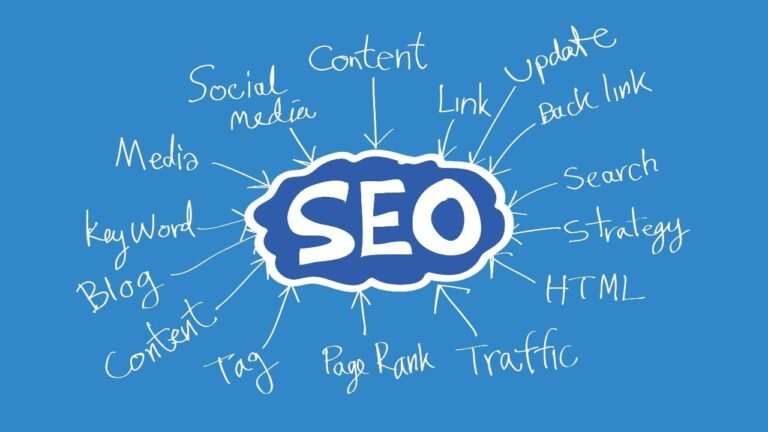What Are the Three Basic Tasks of a Search Engine?
Search engines have become an essential part of our daily lives. Whether you’re looking for the nearest coffee shop, researching a complex topic, or just trying to settle a debate with friends, search engines do all the heavy lifting. But have you ever wondered what’s happening behind the scenes? How do search engines deliver relevant results in milliseconds? It all boils down to three basic tasks: crawling, indexing, and ranking. Let’s dive in and uncover how search engines work their magic!
Understanding How Search Engines Work
The Role of Search Engines in Information Retrieval
At their core, search engines are digital librarians—but instead of managing a collection of books, they manage an ever-expanding web of information. They scour billions of webpages to find, store, and serve the most relevant content when you enter a search query. Their ultimate goal? Delivering the best possible answers, as quickly as possible.
Why Search Engines Perform These Tasks
Search engines aren’t just helpful tools; they’re sophisticated systems designed to organize the internet. Without them, finding relevant information would be like searching for a needle in an infinite haystack. The three fundamental tasks—crawling, indexing, and ranking—enable search engines to present the most accurate results and keep the web organized.
The Three Fundamental Tasks of a Search Engine
Crawling – Discovering Content Across the Web
The first step in the search engine process is crawling. Think of it as a spider (technically called a bot or crawler) scouring the web, hopping from link to link, and collecting data on webpages. These crawlers:
- Visit new and updated websites
- Follow internal and external links
- Retrieve data from webpages to process further
If a website isn’t crawlable (due to poor structure or restrictive settings), search engines won’t know it exists. That’s why ensuring your site is search engine-friendly is crucial for visibility!
Indexing – Organizing and Storing Web Data
Once crawlers gather information, search engines don’t just let it sit there. They process and store it in a massive database called an index. This step helps organize content efficiently so that when users search for something, relevant pages can be retrieved quickly.
Think of it as a digital filing cabinet where search engines categorize information based on keywords, relevance, and user intent. If your content isn’t indexed properly, it won’t show up in search results—no matter how great it is.
Ranking – Delivering the Most Relevant Results
Ranking is where the real competition begins. When you enter a search query, the search engine evaluates millions of indexed pages to determine which results are the most relevant to your request. Several factors influence rankings, including:
- Relevance to the query (keywords and content matching search intent)
- Website authority (backlinks and domain trustworthiness)
- User experience (page speed, mobile-friendliness, and engagement)
This is where SEO (Search Engine Optimization) comes into play. If you optimize your website correctly, you increase your chances of ranking higher and getting more traffic.
Why These Search Engine Tasks Matter for SEO
How Crawling Affects Website Visibility
If search engines can’t crawl your site, they won’t index or rank it. Simple as that. To improve crawlability:
- Ensure your website has a clean and structured sitemap
- Fix broken links that lead to dead ends
- Use robots.txt files wisely (don’t accidentally block important pages!)
Optimizing for Indexing – Ensuring Search Engines Understand Your Content
A well-indexed site means your content is properly stored and can be retrieved when needed. To make this happen:
- Use descriptive meta tags and headers
- Optimize images with alt text
- Avoid duplicate content that confuses search engines
Ranking Factors That Influence Search Results
Even if your site is crawled and indexed, ranking high requires effort. Here’s what matters most:
- Quality content – Provide value that matches search intent
- Mobile-friendliness – Ensure your site is responsive
- Page speed – Nobody likes slow websites, not even search engines
- Backlinks – Quality links from reputable sites boost authority
Best Practices to Improve Search Engine Performance for Your Website
Optimizing Website Structure for Better Crawling
If your site is a maze, search engines won’t navigate it efficiently. Here’s how to help crawlers:
- Use clear and logical navigation
- Implement an XML sitemap
- Keep URLs short, descriptive, and free of random characters
Creating High-Quality Content for Effective Indexing
Search engines love fresh, relevant, and valuable content. To stand out:
- Write in-depth, keyword-rich articles
- Format content with bullet points and headers for readability
- Update old content to maintain relevance
Boosting Ranking with SEO Strategies
Want to climb the rankings? Here’s your to-do list:
- Conduct keyword research to target high-traffic terms
- Optimize meta descriptions for better click-through rates
- Build authoritative backlinks from trusted sources
- Enhance page loading speed for a better user experience
Final Thoughts – Mastering Search Engine Basics for SEO Success
Key Takeaways on Search Engine Tasks
- Crawling discovers new content across the web
- Indexing organizes and stores information for retrieval
- Ranking determines which pages appear first in search results
Each of these steps plays a vital role in how search engines operate—and how your website performs in search rankings.
Actionable Steps to Improve Your Website’s Search Visibility
- Audit your site for crawl errors using tools like Google Search Console
- Ensure all important pages are indexed and remove duplicate content
- Implement SEO best practices to improve ranking and traffic
Need help optimizing your site for search engines? Contact us for a free consultation, and let’s boost your rankings today!
FAQs
How often do search engines update their rankings?
Search engines continuously update their rankings, but major algorithm updates happen several times a year.
Can a website rank without backlinks?
Yes, but backlinks help improve authority and rankings significantly. High-quality content can rank on its own, but backlinks boost credibility.
Do search engines rank all websites equally?
No, rankings depend on factors like relevance, authority, and user experience. Established and optimized websites tend to rank higher.
How long does it take for SEO efforts to show results?
SEO is a long-term strategy; it can take anywhere from a few weeks to several months to see significant ranking improvements.
What’s the best way to track my website’s SEO performance?
Use tools like Google Search Console, Google Analytics, and third-party SEO platforms to monitor rankings, traffic, and crawlability.









